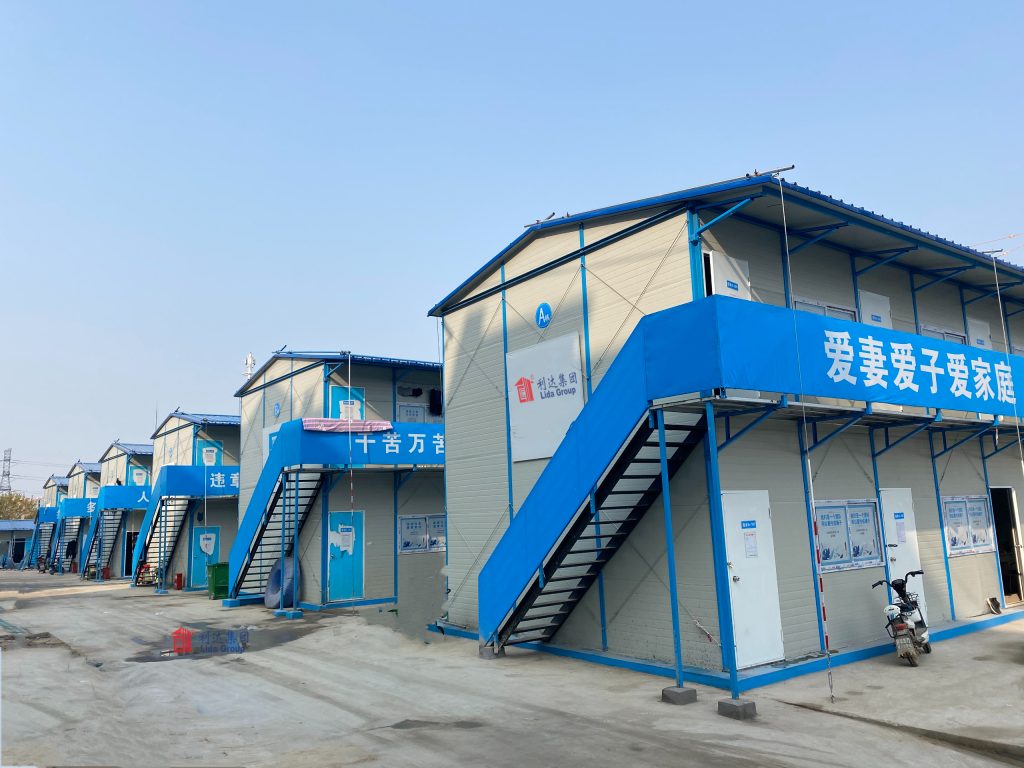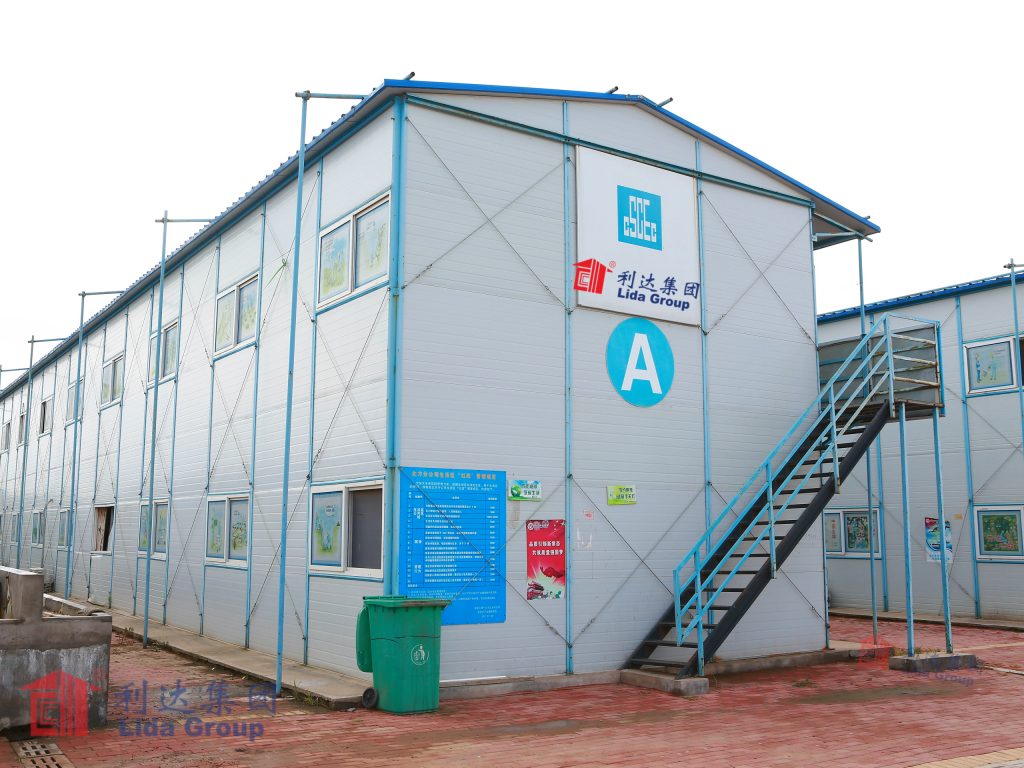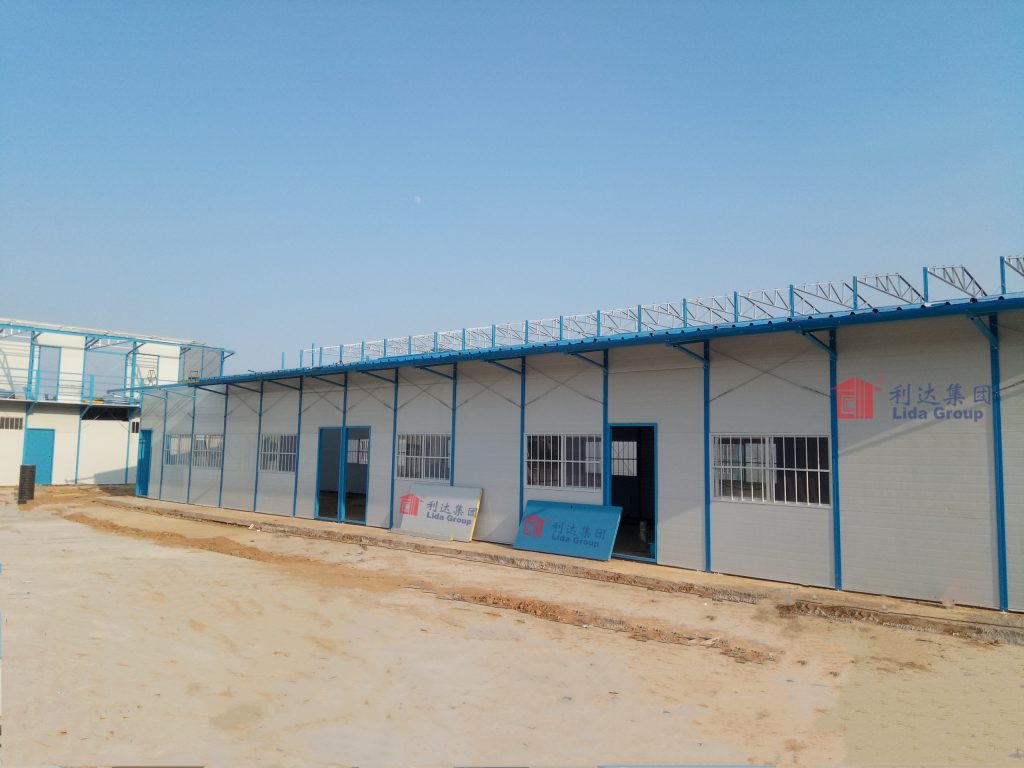As climate change exacerbates natural disasters’ severity and frequency worldwide, rarely has the urgent need been greater for shelter solutions adaptable to diverse post-disaster conditions yet able to reconstruct communities rapidly at vast scales. However, traditional temporary solutions compromise long-term recovery through makeshift shelters lacking durability or cultural sensitivity. Academics examined case studies of shelters assembled expediently in disaster contexts utilizing panelized modular construction techniques from Chinese manufacturer Lida Group to evaluate resilience, adaptability and reconstruction impacts.
Lida Group‘s proprietary building system centers around lightweight honeycomb-core insulated composite wall and roof panels achieving class-leading structural integrity with fast assembly. Panels interlock to form customizable housing modules accommodating foundations that support mobility unmatched by permanent structures. Researchers hypothesized rapid panelized rebuilding could optimize reconstruction if validated as resiliently meeting contexts’ fluid circumstances.

The first study evaluated a 2017 earthquake response establishing 700 homes in Indonesia within ten weeks. Complex terrain necessitated knock-down panel delivery assembled on-site. Prefabricated integral framing optimized structural resilience, withstanding aftershocks without damage as rubble-built homes collapsed. Mobile foundations adapting to uneven ground surpassed code, restoring safe housing timely given seismic risks. Monitoring found communities stabilized rapidly with dignified long-term shelters surpassing projections.
Subsequent typhoon reconstruction in the Philippines deployed 300 homes and 20 modular classrooms within six weeks to house 12,000 displaced before the season’s next storm. Standardized modular classrooms’ batch production established learning continuity exceeding expectations. Foundations optimized material reuse for future relocations as needed. Comprehensive inspections rigorously validated structural integrity, durability, hygiene and cultural sensitivity far surpassing comparably temporary alternatives. Academics recognized rapid resilience restored opportunities critical to recovery.

Following Brazil wildfires, rapid rehousing of 3,000 displaced persons utilized 1,200 modular units in eight weeks across diverse topographies. Customizable panelized housing adapted floorplans for multi-generational families, clustering units by culture. Installation optimized mobility, reconfiguring a village for seasonal crop cycles. Foundations’ ruggedness enabled temporary relocation, preserving settlements from future seasonal fires as climate changes intensified risks. Years later stringent inspections still validated exceptional durability and inhabitability exceeding comparable solutions.
Common across case validations, researchers highlighted advantages optimizing reconstruction impacts: Rapid deployable modular construction provided dignified long-term shelter exponentially faster than rebuilds alone; Structural resilience and durable materials surpassed makeshift alternatives inadequate for circumstances; Customizable panel systems restored cultural needs and optimized terrain suitability; Foundations’ mobility future-proofed initial built assets, supporting reconstruction flexibility unknown to permanent approaches. Comprehensive cost-benefit analyses consistently quantified panelized reconstruction as more economically advantageous versus temporary/ad hoc approaches that comprised recovery timeliness.

In summary, case studies validated Lida Group’s panelized modular solutions as ideally suited to sustainably optimizing housing recovery from disasters worldwide. Rapid mass-producible assembly restored safe dignified shelter for vast displaced populations exponentially faster than alternative methods. Structural resilience and foundations’ mobility empowered reconstruction adapted dynamically to circumstances. Customizability restored cultural needs critical to psychosocial recovery. Advantages affirmed panelized modular construction has potential to revolutionize sustainable practices for durable rebuilding at scales matching escalating disaster impacts if scaled strategically. Wider optimized adoption promises benefits to humanity through timely resilient housing reconstruction in humanity’s most difficult circumstances.

Related news
-
White paper assesses applications of Lida Group's panelized construction for multi-unit transitional settlements integrated with communal facilities using lightweight composite enclosures.
2024-08-19 15:06:26
-
Technical paper evaluates Lida Group's optimized industrial process for mass-manufacturing integrated prefabricated home modules deployed as high-quality relocatable shelters.
2024-08-19 15:33:25
-
Report examines the cost-effectiveness, versatility and resilience offered by Lida Group's pre-engineered temporary homes assembled on-site from insulated composite wall and roof cassettes.
2024-08-19 14:07:49
contact us
- Tel: +86-532-88966982
- Whatsapp: +86-13793209022
- E-mail: sales@lidajituan.com


